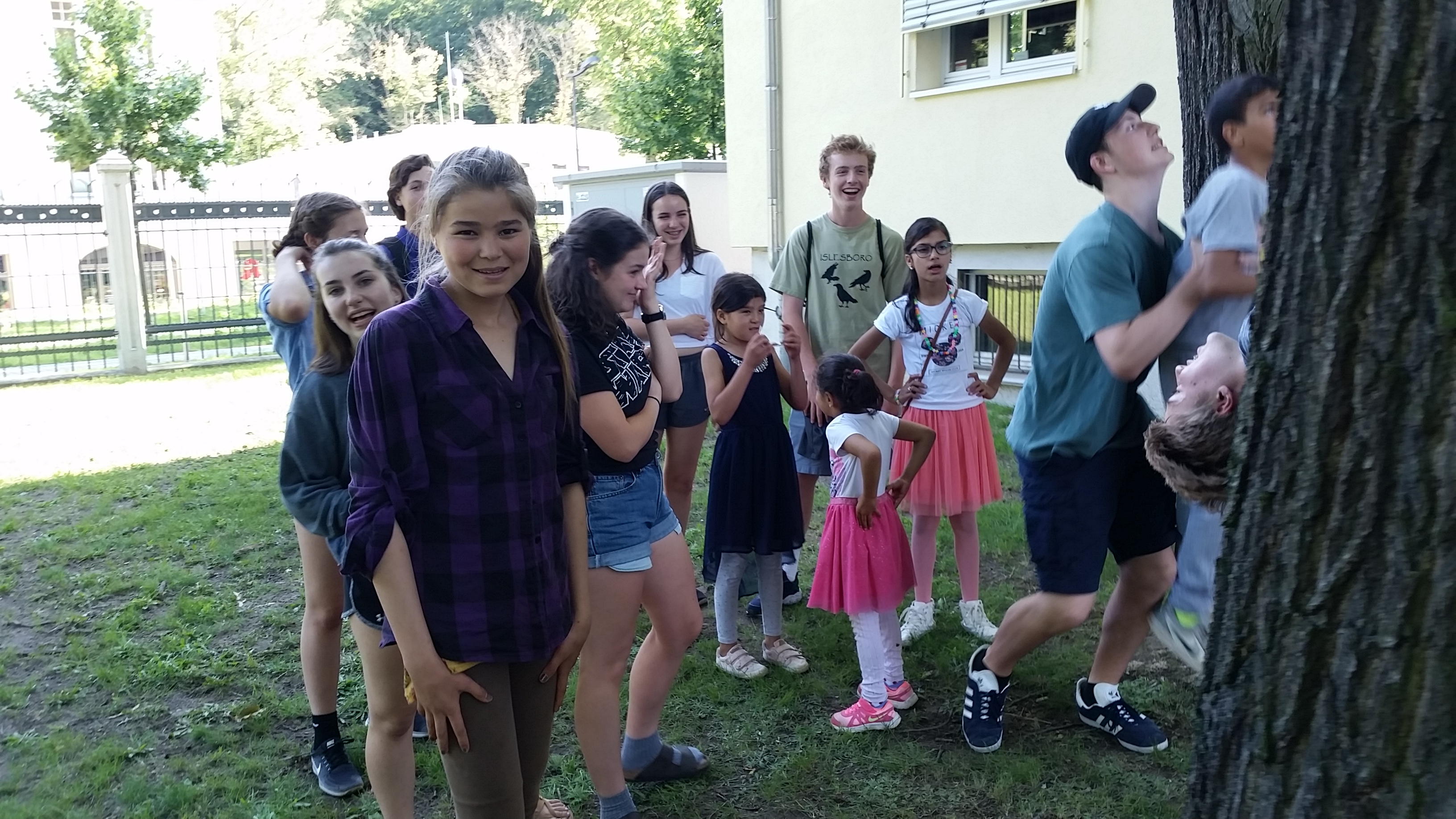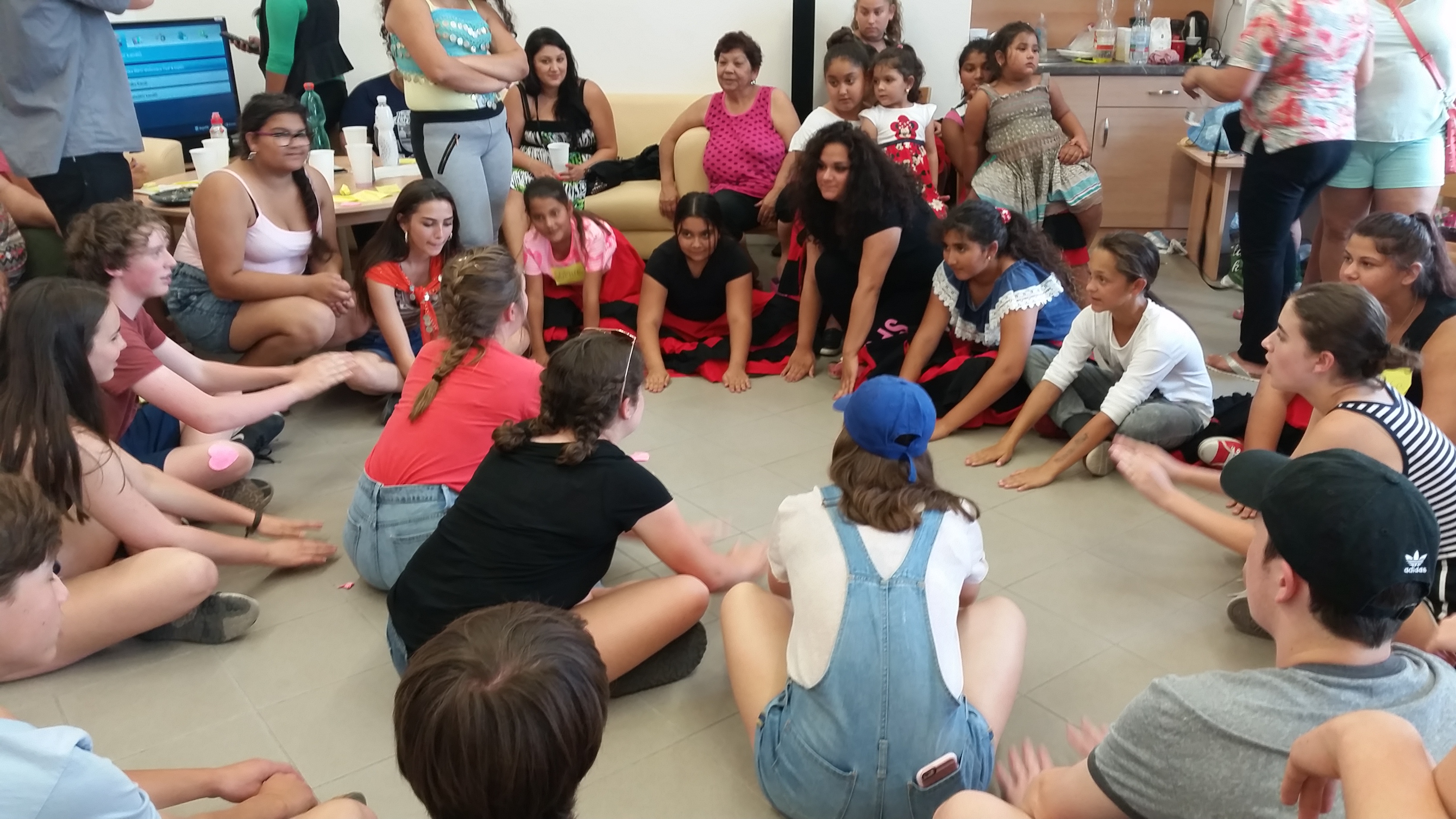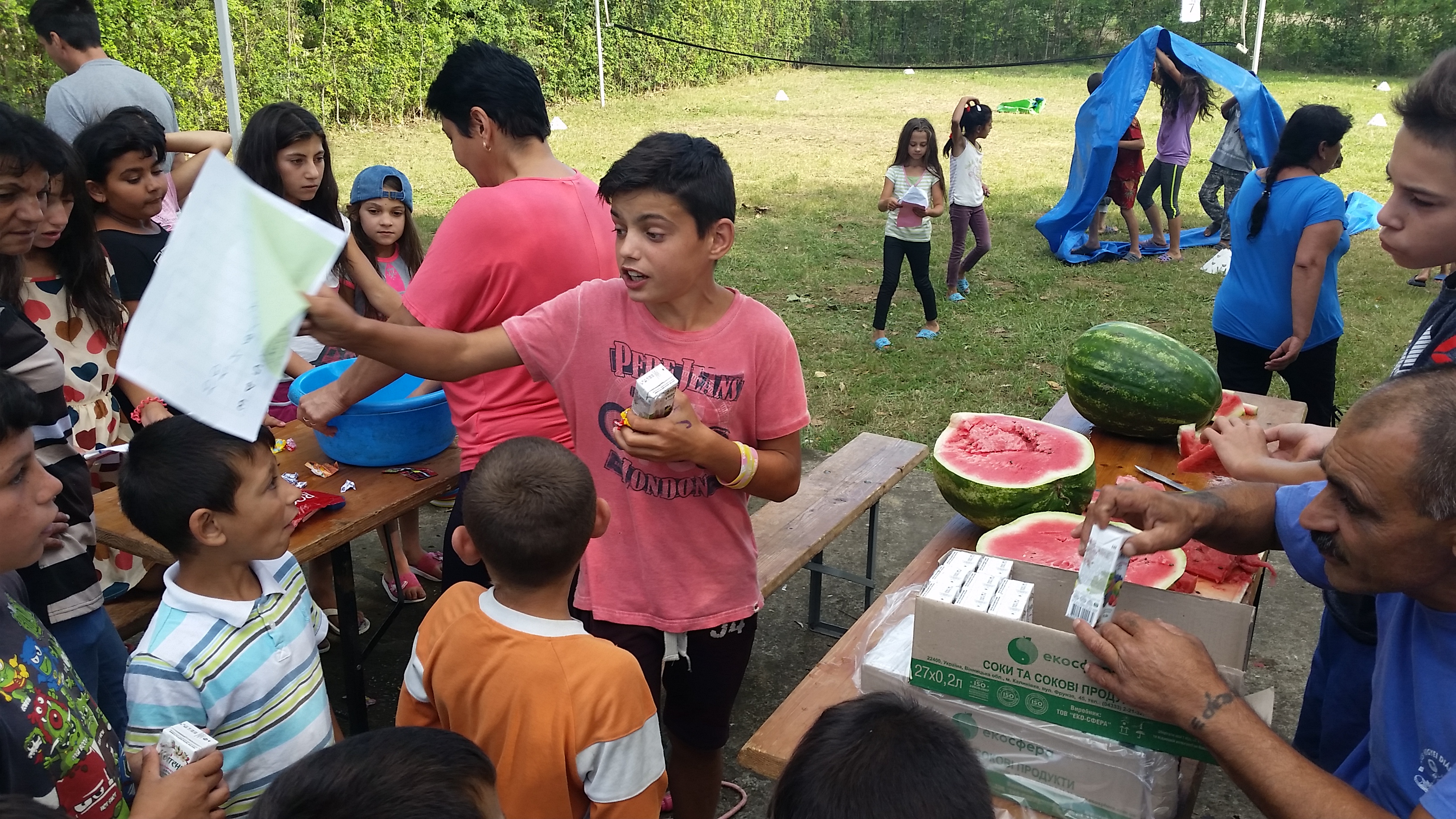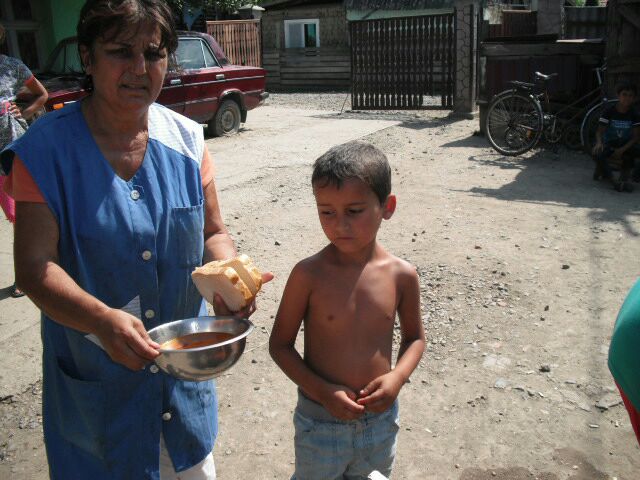A letter from Burkhard Paetzold, serving as Regional Liaison for Central and Eastern Europe, based in Germany
November 2017
Write to Burkhard Paetzold
Individuals: Give online to E200392 for Burkhard Paetzold’s sending and support
Congregations: Give to D506900 for Burkhard Paetzold’s sending and support
Churches are asked to send donations through your congregation’s normal receiving site (this is usually your presbytery).
Dear Friends,
Thank you for all your prayers and support. I hope you enjoyed the summer and are having a smooth transition into fall.
In Germany, fall started with a federal election, and the campaign as well as the results brought a lot of discussion. One topic that is still hotly contested here is refugees. There are those who are mourning refugees who lost their lives in the attempt to cross the Mediterranean and are committed to welcoming and working to integrate those who successfully arrive in Europe. And there are others who believe refugees have no place here.
In debates about the challenges of sharing the burden equally among the different countries in Europe, you often hear that we first and foremost must fight the root causes of the refugee crisis. People have a different understanding of what these root causes might be. We hear official voices that want to make us believe the root causes are open borders and the cruelty of people smugglers who put immigrants in unsafe travelling conditions or even benefit from a trafficking business. But there is a contradiction: if we close borders and make access to Europe harder and harder, we strengthen their business.
I think those of us who are connected with countries in Africa, the Middle East, or Central Asia know better. It’s a complex mesh that is rooted in injustice, the absence of peace, and the destruction of God’s beautiful creation. Inequity and a lack of hope for the future force people to leave their homelands.
Even though there are many homemade problems originating in the countries from which refugees are fleeing, many other issues point to us in the Global North—North America and Central and Western Europe. Proxy wars and arms trade that fuel these wars and help warlords. Unfair terms of trade, big business exploitation of natural resources, work in cheap labor jobs, and disasters caused by manmade climate change. Situations that don’t stop because they serve the industries driving and driven by our wasteful consumerist lifestyle. It’s true that fighting these root causes should have our highest priority.
In order to, as Rick Ufford-Chase puts it, “faithfully resist,” we need to learn first, and hear the stories of the victims. Our mission needs to be, in Linda Eastwood’s terms, a “move to the margins.”
In early July, I was happy to travel with a youth group, their pastor, and two elders from the Presbyterian Church of Upper Montclair, NJ (PCUM) who visited Berlin and Prague. I was so glad to see that this group came with a learning attitude, a desire to “move to the margins.”
We acquainted ourselves with refugee work, including the work of Berlin City Mission, one of the PC(USA)’s long-term partners, who introduced our group to its programs with the homeless and refugees. When we attended an open house at a “welcome refugees” initiative in Hoppegarten near Berlin, we heard firsthand stories of refugees and played with the kids. In Prague, we heard how different the refugee situation is in the Czech Republic. Alena of the Diakonie of the Evangelical Church of Czech Brethren (ECCB) spoke to the students about the limited number of asylum seekers accepted by the Czech government and society, about the ECCB’s integration project for refugees, and about its work in a detention center.
I was surprised and excited that the visiting group from PCUM was interested in learning about Roma (formerly known as Gypsies) in Europe. Among other activities, we went to the Documentation and Culture Center for German Sinti and Roma. Our group learned about the fate and civil rights movement of Sinti and Roma in Germany during the time of the Nazi Regime and after WWII, but learned that racism in Germany is still present.
The PCUM group continued learning about Roma people in the town of Kralův Dvůr, southwest of Prague/the Czech Republic, where we met a Roma youth group. The meeting started with sharing food that the Roma had prepared for us. Both youth groups were shy, so we ate almost silently, but the ice broke when we sang and danced together, with each youth group sharing its own favored dances and songs.
What will be next? What happens after the US kids return home? Will they keep telling the stories? Will some of them decide to serve as a Presbyterian World Mission Young Adult Volunteers (YAV)? Will some of them get involved in mission that brings them to the margins? Will some of them resist root causes of racism and anti-refugee sentiments in their own country? If so, how do we teach each other perseverance in times of frustrations? How do we strengthen community? How do we pray together where common prayers are needed to keep hope burning?
These questions arose to me when I went to Carpath, Ukraine, where I faced changes because my friends, RCA mission co-workers Carolyn and Dick Otterness and PC(USA) mission co-worker Nadia Ayoub, will retire soon. Prayers are urgently needed for Roma community work in the Reformed Church in Carpath, Ukraine, where six or seven former local mission co-workers left Ukraine for different reasons, which leaves the Csonkapapi Roma Center vacant. In addition, experienced leaders in a variety of Roma communities have lost their positions.
I thank God that when I went in July, the children’s summer camp in Csonkapapi was still open. But we learned that the future of the center is unclear: revitalization requires prayers, good decisions, and most of all, a network of committed leaders that includes Roma leaders.
Consider our Romani friend Jolan, a teacher in the Roma school in Gat, with her staff of three Romani women who had to leave the preschool recently after 17 years of good work with the little kids. It was so encouraging to see that Jolan and her daughter Jutka “weave” new ideas. Jolan’s dream is a preschool and community center, and she is willing to offer her private home in the Roma settlement—small as it is—to make it a reality.
Another joy was to see our old Roma friend Bela in the kids’ summer camp cutting and distributing melon slices, every piece with a big smile for each kid who took it. People like Jolan and Bela urgently need our prayers and support. Let’s join in their dreams and prayers, would you?
It is such a wonderful privilege to have friends like Jolan and Bela and to be able to connect them with you and your prayers. I’m grateful for your prayers and financial support for Presbyterian World Mission, for they help me and many of my colleagues in mission continue our bridge-building tasks in times when bridge-building is so needed. Please continue in your prayers, and please continue to contribute financially. You are an integral part of my ministry.
Grace and peace,
Burkhard
Please read this important message from Jose Luis Casal, Director, Presbyterian World Mission
Dear Friend of Presbyterian Mission,
What a joy to send this letter! As Presbyterian World Mission’s new director, I thank God for your faithful support of our mission co-workers. The enclosed newsletter celebrates the work you made possible by your prayers, engagement, and generous financial gifts. We can’t thank you enough.
After I began in April, I met with mission co-workers and global partners and was blessed to see firsthand the mighty ways God is working through them! Our global partners are asking us to help them move forward with life-changing ministries. Because of your support, we can say “yes” to these creative and exciting initiatives.
I write to invite you to make an even deeper commitment to this work. First, would you make a year-end gift for the sending and support of our mission co-workers? We need your gifts to end the year strong. With your help, we filled two new mission co-worker positions and plan to recruit for others. The needs in the world are great, and World Mission is poised to answer the call to serve.
Second, would you ask your session to add our mission co-workers to your congregation’s mission budget for 2018 and beyond? Our mission co-workers serve three-year or four-year terms. Your multi-year commitment will encourage them greatly.
Our mission co-workers are funded entirely from the special gifts of individuals and congregations like yours. Now more than ever, we need your financial support.
In faith, our mission co-workers accepted a call to mission service. In faith, World Mission sent them to work with our global partners. In faith, will you also commit to support this work with your prayers and financial gifts?
With gratitude,
Jose Luis Casal
Director
P.S. Your gift will help meet critical needs of our global partners. Thank you!
![]() You may freely reuse and distribute this article in its entirety for non-commercial purposes in any medium. Please include author attribution, photography credits, and a link to the original article. This work is licensed under a Creative Commons Attribution-NonCommercial-NoDeratives 4.0 International License.
You may freely reuse and distribute this article in its entirety for non-commercial purposes in any medium. Please include author attribution, photography credits, and a link to the original article. This work is licensed under a Creative Commons Attribution-NonCommercial-NoDeratives 4.0 International License.



